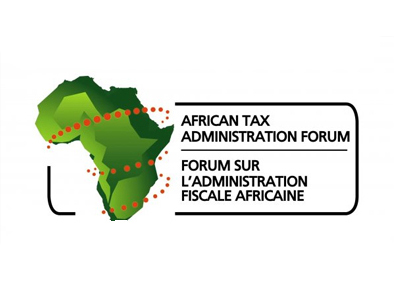Revenue
Collection: Tax Administration and Policy
Effective revenue collection provides government with funds that are needed to develop the country, alleviate poverty and to deliver much-needed public services. Fiscal pressures in many African countries are growing. Hence, there is an urgent need to strengthen Domestic Resource Mobilisation (DRM) to attain the 2030 Sustainable Development Goals (SDGs) adopted by the United Nations in 2015 and achieve the African Union 2063 transformational agenda.
In addition to the financial pressure felt in Africa, Illicit Financial Flows (IFFs) are depleting the resources of countries on the continent. The Panama Papers, leaked in April 2016, and later the Pandora Papers, leaked in October 2021, revealed cases of large-scale tax avoidance, especially by multinational companies that exploit loopholes in their national tax legislations and in international tax laws. Corruption, criminal activities and international commercial transactions with tax avoidance as main goal threaten domestic resource mobilisation ‒ the very requirement for achieving the SDGs and 2063 agenda’s goals. A capable and efficient tax system is crucial for establishing good governance and democracy, as it promotes accountability and ownership between a country and its citizenry.
Our Partner: The African Tax Administration Forum
One of the key partners of GIZ’s Good Financial Governance (GFG) in Africa programme in Tax Administration and Policy is the African Tax Administration Forum (ATAF). ATAF is a regional member-based network of African tax administrations, founded in 2009 to provide relevant services to its members and represent their interests in international tax debates. To date, ATAF has 40 member countries throughout Africa.
The GFG in Africa programme supports ATAF by providing strategic, technical and organisational expertise, as well as advisory services. It assists in forming sound policies, organisational structures and effective methods of management. For more information on ATAF, visit www.ataftax.org.

Tax Partnership programmes:
Exchange of information deals with the exchange of specific tax information from Revenue Administrations or any other institutions. Revenue Administrations keep taxpayer information and have certain legislative powers in collecting information from the taxpayers. Through its Exchange of Information (EOI) Country Programmes, ATAF has reviewed business structures and procedures of member countries leading to implementation of Automatic Exchange of Information and EOI-Units namely in Botswana, Cameroon (AEOI), Rwanda, Namibia, Togo, Uganda (AEOI) and Zambia. ATAF further developed Practical Guidelines on Exchange of Information, African Agreement of Mutual Assistance in Tax Matters (AMATM), and African update on Common Reporting Standard as well as the Foreign Account Tax Compliance Act (FATCA). These initiatives by ATAF are supported by the GIZ-GFG in Africa programme.
To ensure that member countries have effective tax regimes using tailor-made solutions to their unique revenue mobilisation challenges, ATAF established a technical assistance unit aimed at providing technical assistance programmes in reviewing legislation, risk assessment processes, governance procedures and organisation restructuring plus audit training workshops.
Under this joint action, which is co-financed by the European Union (EU), Ministry for Foreign Affairs of Finland and the German Federal Ministry of Economic Development and Cooperation (BMZ) and implemented by the Deutsche Gesellschaft für Internationale Zusammenarbeit (GIZ) through the Good Financial Governance (GFG) Programme in Africa, in partnership with the four pan-African network organisations. African Tax Administration Forum (ATAF) and GFG, will contribute to strengthen the capacity of the AUC in fighting IFFs while benefitting to AU Member States and their citizens who will experience a positive impact of the improved tax revenue collection as a result of reduced IFFs in their countries. In addition, ATAF will contribute to increase the understanding of the nature and extent of IFFs in Africa, whilst enhancing the transparency in the fight against IFFs.
The partnership between GIZ and ATAF has produced a higher education programme called the Executive Master’s in Taxation (EMT), tailor-made to the needs and conditions of African Tax officials and institutions. The 15-month Master’s programme follows a practice-oriented and interactive learning approach, combines a political, economic, organisational and legal perspective on the issue of taxation, and unites local and international expertise through African-European cooperation with universities and training institutions. ATAF and GIZ are currently in the process of adjusting the concept for the EMT through development of EMT Competency Framework, in order for the 3rd EMT cohort to be continued in 2022. More information on the EMT visit: https://www.ataftax.org/Executive-Masters-in-taxation
GIZ assists ATAF in the establishment of a knowledge exchange platforms beyond borders among ATAF member countries. The African Tax Research Network (ATRN) – https://www.atrnafrica.org/ aims to facilitate up-to-date African research in tax policy, administration, and legislation. The African Tax Outlook (ATO) is a yearly publication on quantitative and qualitative African tax data that provides valuable, practical and relevant descriptive and analytical work on tax issues to improve tax administration and inform tax policy formulation and implementation in Africa. The African Multidisciplinary Tax Journal (AMTJ) – https://www.atrnafrica.org/AMTJ is an annual, applied scientific journal that is double-blind peer-reviewed and publishes original high-quality research papers that use analytical, empirical and contemporary methods across the whole spectrum of taxation research.
For more information on ATAF please visit www.ataftax.org

Publications

Success Stories
P.O. Box 28102, Sunnyside, 0028 Hatfield Gardens, Block E, Third Floor 333 Grosvenor Street, Pretoria South Africa
Useful Links
News & Updates
The latest news, articles, and resources, sent straight to your inbox every month.


